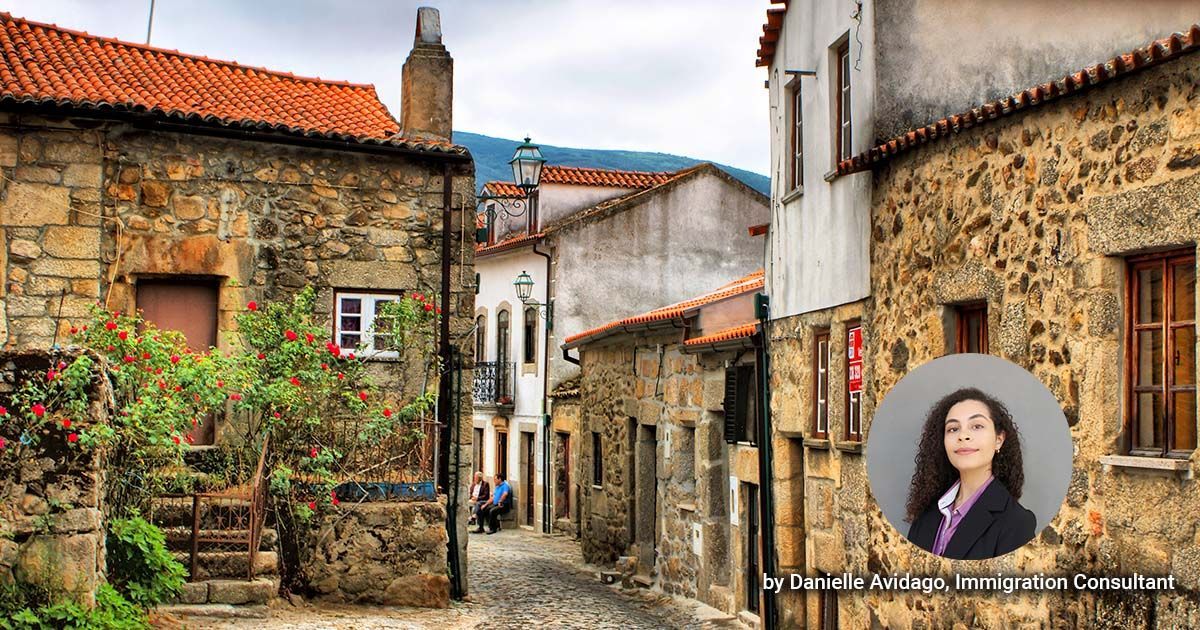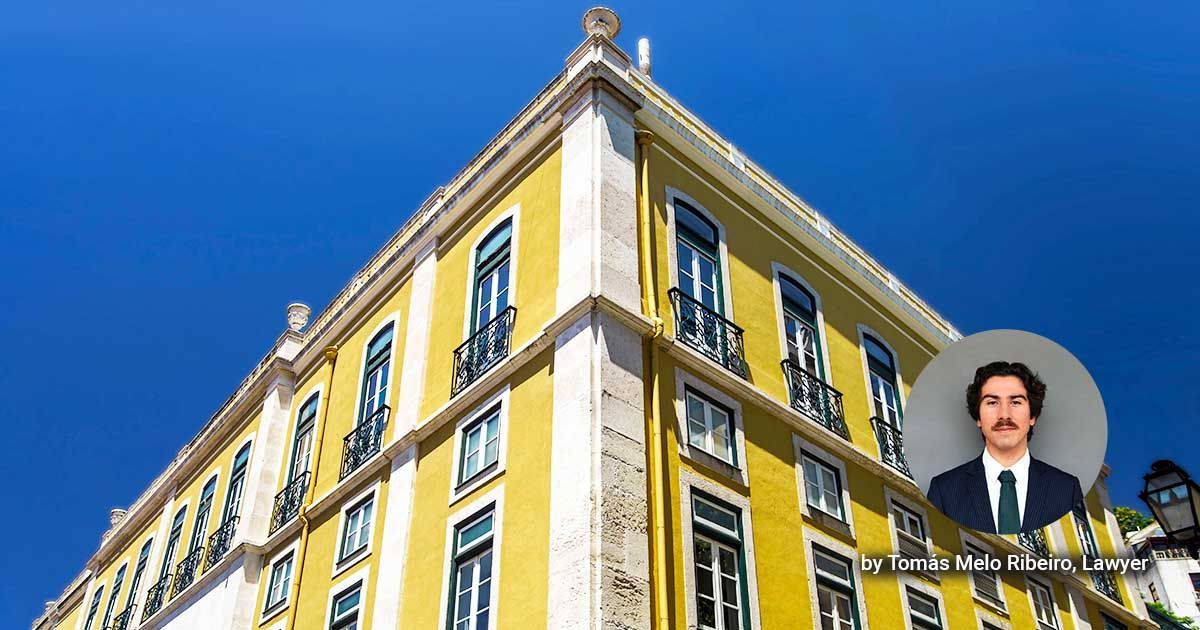Portugal: An Accessible Path to Residency and Citizenship for U.S. Citizens
Interest in relocating abroad has been steadily growing among U.S. citizens, with election cycles often serving as a significant motivator for Americans to seek residency options overseas. According to recent data from Henley & Partners, there has been a remarkable 504% surge in applications for residency and dual citizenship from the U.S. This trend reflects a broader desire among Americans to explore international living options, particularly in times of political change.
Supporting this trend, a recent survey by International Living found that 65% of respondents cite U.S. elections as a primary motivation for considering a move abroad.
In light of this trend, it is clear that Americans looking to live abroad need precise and comprehensive information to make well-informed decisions aligned with their long-term aspirations. A meticulously planned approach is crucial for facilitating a seamless transition and ensuring a rewarding experience for both individuals and families as they undertake this significant journey.
US citizens are becoming increasingly familiar with Portugal, both as a travel destination and as a place to live. According to data from AIMA, the agency responsible for immigration control in Portugal, American citizens represented the largest group of Golden Visa holders in 2023. Out of the 2,901 Golden Visa permits granted last year, 567 were issued to US citizens, and 1,554 pertained to the right to family reunification. US citizens account for approximately 20% of the total Golden Visas in Portugal and about 42% of the Golden Visa holders.
In terms of tourism, US citizens have become an increasingly significant presence in Portugal, with over one million visitors recorded in the first half of 2024, according to official data. In just two years, the number of American visitors to Portugal has nearly doubled, highlighting the growing appeal of the country as a destination for travel.
Why Choose Portugal as a New Place to Live?
Portugal is often ranked among the top destinations for Americans considering a move abroad. However, the decision to make it your new home should be based on a variety of personal factors, beyond its popularity.
Choosing the ideal location is a highly personal decision, shaped by individual needs, preferences, and goals. Factors such as climate, cost of living, and culture play a significant role in this choice. That’s why it’s essential to consider key questions: Do I prefer living in nature or a bustling city? Is easy access to healthcare important? Would I like to live near the beach? Do I want to immerse myself in the local culture, or would I feel more comfortable in a community with other US citizens?
What Residency Options Does Portugal Offer?
Whether seeking a long-term relocation or a temporary experience, Portugal provides excellent options to accommodate both needs. For those who wish to immerse themselves in the culture and lifestyle for a few months to a year, Portugal offers a variety of temporary stay visas. These visas are designed for individuals planning to stay in the country for over 90 days but less than a year, with the flexibility to extend if desired. The application process is efficient, often finalized within 30 days, allowing for a smooth transition to Portugal.
For those seeking a temporary stay visa, particularly in light of recent US election dynamics, the most suitable options are:
- E3 Visa: Ideal for those pursuing independent work in Portugal. Applicants need documentation such as a registered business or service provider contract.
- E9 Visa for Digital Nomads: Tailored for remote professionals aiming to reside temporarily in Portugal. Requirements include proof of remote work capability, a minimum monthly income four times the Portuguese minimum wage for the last three months, and supporting documentation like work contracts or client agreements.
- Family Reunion Visa: Designed for family members joining a primary applicant holding a Residence Visa. Required documentation includes proof of family ties (e.g., birth or marriage certificates), financial stability, and, where applicable, the main applicant's National and Residence Visa.
Additional temporary stay visas are available for various purposes, including for amateur athletes, individuals seeking medical treatment, or professionals involved in scientific research, academic teaching, or specialized fields in Portugal.
Contact us to find the visa option best suited to you and your family’s goals.
For US citizens looking to reside in Portugal for more than one year, the country also provides a wide range of visas, each designed to meet different immigration needs, ensuring straightforward access for various groups of foreign nationals. Below, we outline the key residency options and their essential requirements:
- D1 Visa: Ideal for individuals aiming to live and work in Portugal, this visa requires a valid work contract or offer of employment in Portugal for at least one year.
- D2 Visa: Tailored for freelancers and entrepreneurs, the D2 Visa enables residence for self-employed professionals or business owners. Entrepreneurs must demonstrate either an investment in Portugal or the availability of funds for investment, accompanied by a detailed business plan. Freelancers should provide evidence of relevant professional qualifications.
- D3 Visa: Designed for highly skilled professionals, this visa is available to non-EU citizens with a valid job contract for at least a year in a qualified field. Higher-income levels can strengthen the application, and applicants must prove relevant qualifications.
- D4 Visa: For those seeking to live in Portugal for study or training purposes, the D4 Visa is suited for students, exchange participants, and individuals undertaking professional internships lasting over three months.
- D5 Visa: Specifically for college and university students, this visa facilitates residence for those pursuing higher education in Portugal.
- D6 Visa: For family reunification, the D6 Visa allows legal residents in Portugal to bring their spouse, dependent children under 18, and financially dependent parents over 65 to live with them in the country.
- D7 Visa: Commonly known as the “Passive Income Visa” or “Retirement Visa,” this visa is an option for non-EU citizens with a steady income from sources such as pensions or investments.
- D8 Visa: Often referred to as the “Digital Nomad Visa” or “Remote Worker Visa,” the D8 Visa allows non-EU citizens to live in Portugal while working remotely. Applicants must demonstrate a monthly income at least four times the Portuguese minimum wage, approximately €3,280.00 as of 2024.
Each of these visas offers unique pathways to residence in Portugal, accommodating a variety of professional, personal, and financial circumstances. For further details on which visa best suits your needs, feel free to reach out.
In addition to the long-term D visas mentioned above, holders—and by extension, their families—are eligible to apply for Portuguese citizenship after five years of residency in Portugal.
Are There Some Alternative Paths for American Citizens?
If you prefer not to reside in Portugal and wish to have the flexibility to live anywhere else in the world, the best option for American citizens is Portugal’s Golden Visa program. This program provides a simple way to reside in this affordable country, with minimal stay requirements - just 7 days per year or 14 days per 2-year period.
To obtain the Golden Visa, applicants must make an investment in Portugal. There are various avenues for investment, some of which require different amounts.
It also offers a pathway to Portuguese citizenship known as citizenship through investment. After 5 years of having the Golden Visa, its holders become eligible to apply for Portuguese citizenship. This is just one of several pathways available for obtaining Portuguese citizenship.
What Are the Different Pathways to Portuguese Citizenship?
For American citizens seeking Portuguese citizenship, there are several pathways to consider. One option is citizenship through 5 years of legal residency, as previously mentioned. Additionally, U.S. citizens may be eligible for citizenship through descent. For instance, if an American has a parent or grandparent with Portuguese nationality, they may automatically qualify to apply for Portuguese citizenship.
Another pathway to Portuguese citizenship is through marriage or
civil partnership. If an American citizen has been in a relationship with a Portuguese citizen for more than three years, they meet the eligibility criteria to apply for citizenship.
How to Take the Necessary Steps to Make the Move Out of the U.S. a Reality
While moving abroad is a significant decision, having the right information can make the process manageable and realistic. Consulting with knowledgeable immigration lawyers, solicitors, and immigration consultants is invaluable in exploring the opportunities available in Portugal.
Reach out to us, and we will provide expert guidance to help you explore all the opportunities available in Portugal.











